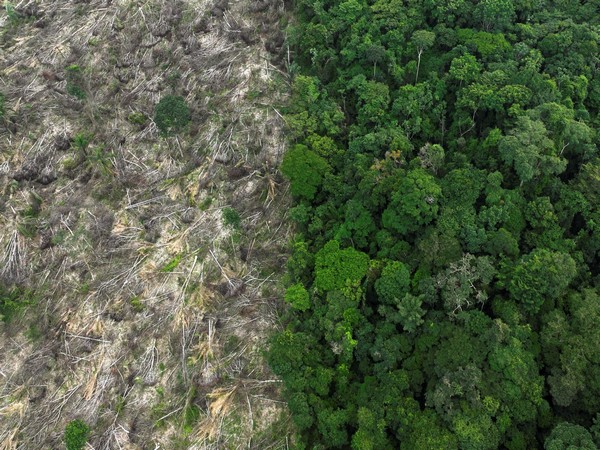

The Yasun National Park in the Amazon rainforest is one of the most biodiverse areas on Earth. According to CNN, Ecuadorians have decided to forbid oil extraction there.
According to the National Electoral Council of Ecuador (CNE), approximately 59 per cent of voters on Monday morning opposed the oil drilling while 41 per cent supported it after more than 92 per cent of the ballots had been tabulated.
As the globe continues to use fossil fuels, the effects of human-caused climate change are becoming more severe. The Earth saw the hottest June on record last month, and according to CNN, some scientists are concerned that the Amazon is nearing a catastrophic tipping point.
The Yasuní National Park park spans around 1 million hectares (2.5 million acres) at the meeting point of the Amazon, the Andes and the Equator. Just one hectare of Yasuní land supposedly contains more animal species than the whole of Europe and more tree species than exist in all of North America, CNN reported.
But underneath the park lies Ecuador’s largest reserve of crude oil.
In 2007, President Rafael Correa proposed that the international community give Ecuador USD 3.6 billion to leave Yasuní undisturbed. But the plan failed.
In 2016, the Ecuadorian state oil company began drilling in Block 43, around 0.01 per cent of the National Park, which today produces more than 55,000 barrels a day, amounting to around 12 per cent of Ecuador’s oil production, CNN reported.
Yasunidos, an environmental collective, has been pushing for the vote to ban drilling in the park for a decade. In May they and other groups secured a victory when the country’s constitutional court authorized the vote to be included on the ballot of the presidential election held on August 20.
Some politicians, including energy minister Fernando Santos, have argued that a ban would have negative impacts on Ecuador’s economy.
Environmental and Indigenous groups argued that Ecuador needs to move away from fossil fuels and protect the Amazon, saying that other economic activities such as eco-tourism could help fill the gap.
In a post on X (the platform formerly knowEcuadorn as Twitter), Yasunidos called the result “a historic victory for Ecuador and for the planet!”
Mitch Anderson, executive director of the non-profit Amazon Frontlines, said in a statement, “In one fell swoop, the Ecuadorian people struck a mighty blow to the oil industry, protected one of the most biodiverse forests in the Amazon, and showed the world what grassroots climate action really looks like.”
The referendum took place alongside the presidential and legislative elections on Sunday, CNN reported.
Luisa González, of the Movimiento Revolución Ciudadana party, took the lead in the first round of the elections, which have been marred by political assassinations and violence driven by criminal organizations vying to control the country’s drug trafficking routes.
González will face second-place finisher Daniel Noboa in a run-off election in October as no candidate won more than 50 per cent of the ballot.